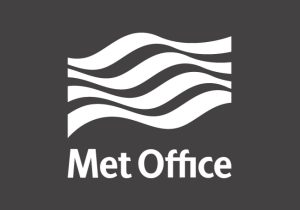
Magna Carta primary resource
How and why were human rights originally protected?
This primary resource introduces children to the Magna Carta in a way that’s fun and easy to comprehend. Discover the history of our human rights and how they have been protected. When was the Magna Carta document written? Why was it created? Which monarch originally signed the Magna Carta?
Pupils will learn how and why human rights were originally protected and how even the ruling monarch must follow the law in our National Geographic Kids’ Magna Carta primary resource sheet.
The teaching resource can be used in study group tasks for learning more about human rights, law and why the ruling monarch must be held to account. It can be used as a printed handout for each pupil to review and annotate, or for display on the interactive whiteboard for class discussion.
Activity: In groups, ask children to discuss the events in the comic and write them up in a paragraph or two. They could research the clauses that were included the Magna Carta and find out which are still used today. Would they add any more clauses to the document today? Pupils could use the Magna Carta comic as a springboard for their own research, to create a timeline of events depicted in the resource.
N.B. The following information for mapping the resource documents to the school curriculum is specifically tailored to the English National Curriculum and Scottish Curriculum for Excellence. We are currently working to bring specifically tailored curriculum resource links for our other territories; including South Africa, Australia and New Zealand. If you have any queries about our upcoming curriculum resource links, please email: schools@ngkids.co.uk
This British values primary resource assists with promoting fundamental British values as part of SMSC (spiritual, moral, social and cultural development) in schools using the following OFSTED assessment criteria:
- It is expected that pupils should understand that while different people may hold different views about what is ‘right’ and ‘wrong’, all people living in England are subject to its law.
- Schools should promote the fundamental British values of democracy, the rule of law, individual liberty, and mutual respect and tolerance of those with different faiths and beliefs.
Through their provision of SMSC, schools should:
- encourage students to accept responsibility for their behaviour, show initiative, and to understand how they can contribute positively to the lives of those living and working in the locality of the school and to society more widely
- enable students to acquire a broad general knowledge of and respect for public institutions and services in England
- encourage respect for democracy and support for participation in the democratic processes, including respect for the basis on which the law is made and applied in England.
The list below describes the understanding and knowledge expected of pupils as a result of schools promoting fundamental British values.
- an understanding of how citizens can influence decision-making through the democratic process
- an understanding that there is a separation of power between the executive and the judiciary, and that while some public bodies such as the police and the army can be held to account through Parliament, others such as the courts maintain independence
Download primary resource
More Like

The life of Alan Turing

FORECAST YOUR FUTURE WITH THE MET OFFICE!

EXPLORE
i-SPY BOOKS









LEAVE A COMMENT
THANK YOU
Your comment will be checked and approved shortly.
WELL DONE,
YOUR COMMENT
HAS BEEN ADDED!
COMMENTS
CUSTOMIZE YOUR AVATAR